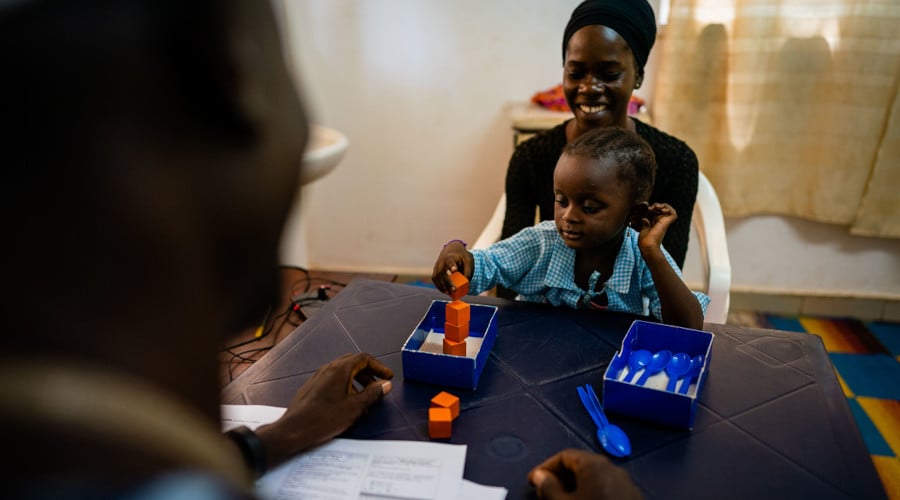Keneba is a rural field station situated in the Kiang West district of The Gambia, about two hours by road from the main MRCG Campus in Fajara. It is the largest village in an area of predominantly subsistence agriculture. MRCG has had a presence in the area for over 75 years and enjoys an excellent relationship with the local community. Many research activities of the Nutrition and Planetary Health theme are based out of Keneba.
The MRCG Keneba Clinic (backed by a custom-built electronic medical register) is a vital facility for data collection and study implementation as well as supporting the core platform for the past 45 years. The clinic provides an extensive, outpatient‐based service concentrating on maternal and child health provisions and working closely with the local Gambian Government Regional Health Team. The clinic also supports the local Karantaba Health Centre and the Maternal and Child Health trekking teams that deliver health care directly to the villages.
This intensity of health care has resulted in impressive improvements in mortality rates but a high burden of infectious diseases and under‐nutrition remains. The field station has a strong record in training our Gambian and other West African staff from basic to post‐doctoral levels. MRCG Keneba hosts many overseas students and researchers, especially medical elective and MSc students.
The villages of Keneba, Manduar and Kantong‐Kunda have traditionally maintained the closest relationship with the field station and have unique demographic and health databases spanning 75 years. Increasingly, our studies and clinical services involve many other villages across West Kiang (supported by the West Kiang DHSS).
The Keneba biobank, initiated in 2012, contains biospecimens and associated health data from all consenting individuals across West Kiang (12000+ individuals).
Keneba also maintains the Bakary Dibba Clinical Physiology Laboratories containing state‐of‐the‐art imaging and test systems for assessing bone density, morphology and architecture, infant and adult body composition.

